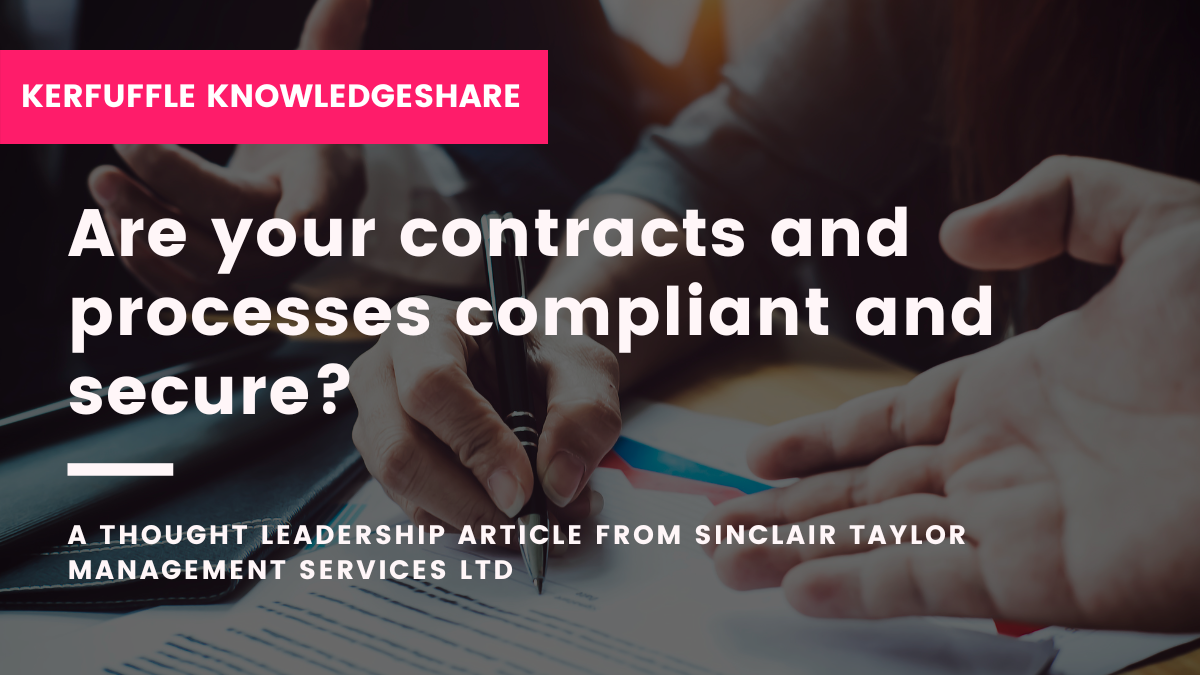Here is a thought leadership article from Sinclair Taylor Management Services Ltd
In our twenty years of identifying missed and outstanding fees through private sales and other agent’s interventions and having successfully recovered millions of pounds for our clients - we’ve seen our fair share of contracts. Here, we look at the key areas that should be included in an agency contract to ensure it is watertight and safeguards you from missing out on fees.
When we find a match of an agency introduction between buyers and vendors, the first thing we do is to establish if the agent has a signed contract. Whilst we pride ourselves on our high success rates, the specific terms within a contract can impact the outcome. We work closely with our clients to make sure their contract safeguards them from missing out on fees, or the right to pursue fees that are rightfully owed to them. Don’t be one of the 50% whose contract inhibits recovery.
Here are the key areas we advise should be included in your agency contract:
- Ensure your contract is compliant in accordance with the terms laid out within the Estate Agents Act (EA Act) and The Property Ombudsman’s (TPO) guidelines
- You should ensure your contract has a dual liability clause
- Your contract should have a ‘Notice of Right to Cancel’ within 14-days of its signing. However, the vendor may opt for marketing immediately. If so, you need the appropriate clause to protect you should you introduce a buyer within the first 14-days who proceeds to completion of the purchase
- Check that your contract gives the vendor the ability to exclude previously interested parties. Do you have the appropriate clause in your contract?
- Check that your contract protects you against all recovery costs should recovery action be required
- Is the contract a ‘sole agency agreement’ or a ‘sole selling rights’? There is an important distinction between the two. Sole selling rights protects you against private sales
- Make sure you have a ‘Ready, Willing and Able’ clause in your contract. This will protect you if, when nearing the point of exchange, the vendors withdraw from the sale
- If a contract changes from a sole to a multi, there are a number of things you need to do to protect your position. Do you have a suitable process in place?
- When your contract is terminated, you should issue a withdrawal letter reminding the vendor/s of the ongoing liability to your commission fee should a buyer introduced by you subsequently proceed to completion. The timing of the letter and its content is important
We hope this guide has been useful in helping to protect you from lost fees. Sinclair Taylor has over twenty years’ experience in debt recovery for the property sector and identifying debts owed to its clients.
If you have concerns about elements of your contract/s or process and need a specialist eye cast over them, we are happy to take a look and will suggest improvements that may be incorporated to safeguard you should you wish.
Who is Sinclair Taylor Management Services Ltd?
Sinclair Taylor has been providing debt recovery solutions to the property sector for over twenty years. We save you time and money by monitoring and collecting lost fees from your withdrawn instructions, on a no collection, no fee basis. We also provide trace and recovery services in connection with withdrawal fees, ground rent and service charges, former tenant tracing, tenancy referencing and bought debt.
Our services
- Debt recovery
- Withdrawn listings
- Withdrawal fees
- Ground rent and services charges
- Former tenant debt
- Legal services
- Absconded tenant tracing
-Tenant referencing
- Bought debt
Problems we solve for agents
We help estate agents, property management companies and private landlords improve cash flow by recovering money that they are owed - whether this be agency fees, rent arrears or commercial rents.
Click here to find out how Sinclair Taylor Management Services Ltd can help your agency



